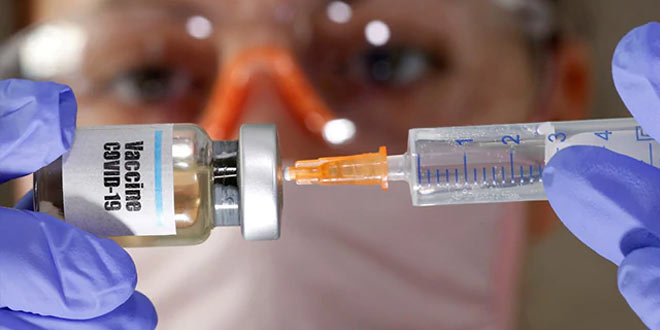Highlights
- The guidelines are built upon the recommendations of US regulatory agencies
- Vaccine allergic reactions are as rare as a rate of 1.3/1 million: Expert
- Vaccines developed by Pfizer, Moderna will have low allergic rate: Expert
New Delhi: Following accounts of potential allergies to the COVID-19 vaccines produced by Pfizer-BioNTech and Moderna, scientists have outlined steps on safely receiving the second dose of the therapeutic in individuals who develop a reaction to their first dose. The research, published in the Journal of Allergy and Clinical Immunology: In Practice, summarised what is currently known about allergic reactions to vaccines like those developed against COVID-19. In the study, a team of experts led by allergists at Massachusetts General Hospital (MGH) in the US, proposed detailed advice so that individuals with different allergy histories can safely receive their COVID-19 vaccine.
Also Read: Health Ministry Releases Communication Strategy To Support COVID-19 Vaccine Rollout
After closer review of the data related to allergic reactions, the US FDA recommended that the mRNA vaccines, based on the genetic material of the novel coronavirus, be withheld only from individuals with a history of severe allergic reactions to any component of the COVID-19 vaccine.
The US Centers for Disease Control and Prevention also advised that all patients be observed for 15 minutes post-vaccination by staff who can identify and manage such reactions.
In the review research, Aleena Banerji, MD, clinical director of the Allergy and Clinical Immunology Unit at MGH and her colleagues outlined steps on safely receiving the second dose in individuals who develop a reaction to the first dose of COVID-19 vaccine.
Our guidelines are built upon the recommendations of US regulatory agencies and provide clear steps to the medical community on how to safely administer both doses of the vaccine in individuals with allergic histories, Ms Banerji said.
According to experts, allergic reactions to vaccines are rare, with a rate of about 1.3 per 1 million people.
They said the mRNA vaccines developed by Pfizer-BioNTech and Moderna will have a similarly low rate of occurrence of allergic reactions.
The researchers recommend that individuals with a history of anaphylaxis to an injectable drug, or vaccines containing polyethylene glycol or polysorbate speak with their allergists before being vaccinated. Ms Banerji and her co-authors also suggested that vaccine clinics monitor all patients for 15 to 30 minutes to manage any allergic reactions that occur. They said even patients with severe allergies to foods, oral drugs, latex, or venom can safely receive the COVID-19 vaccines.
(Except for the headline, this story has not been edited by NDTV staff and is published from a syndicated feed.)
NDTV – Dettol Banega Swasth India campaign is an extension of the five-year-old Banega Swachh India initiative helmed by Campaign Ambassador Amitabh Bachchan. It aims to spread awareness about critical health issues facing the country. In wake of the current COVID-19 pandemic, the need for WASH (Water, Sanitation and Hygiene) is reaffirmed as handwashing is one of the ways to prevent Coronavirus infection and other diseases. The campaign highlights the importance of nutrition and healthcare for women and children to prevent maternal and child mortality, fight malnutrition, stunting, wasting, anaemia and disease prevention through vaccines. Importance of programmes like Public Distribution System (PDS), Mid-day Meal Scheme, POSHAN Abhiyan and the role of Aganwadis and ASHA workers are also covered. Only a Swachh or clean India where toilets are used and open defecation free (ODF) status achieved as part of the Swachh Bharat Abhiyan launched by Prime Minister Narendra Modi in 2014, can eradicate diseases like diahorrea and become a Swasth or healthy India. The campaign will continue to cover issues like air pollution, waste management, plastic ban, manual scavenging and sanitation workers and menstrual hygiene.
[corona_data_new]



























